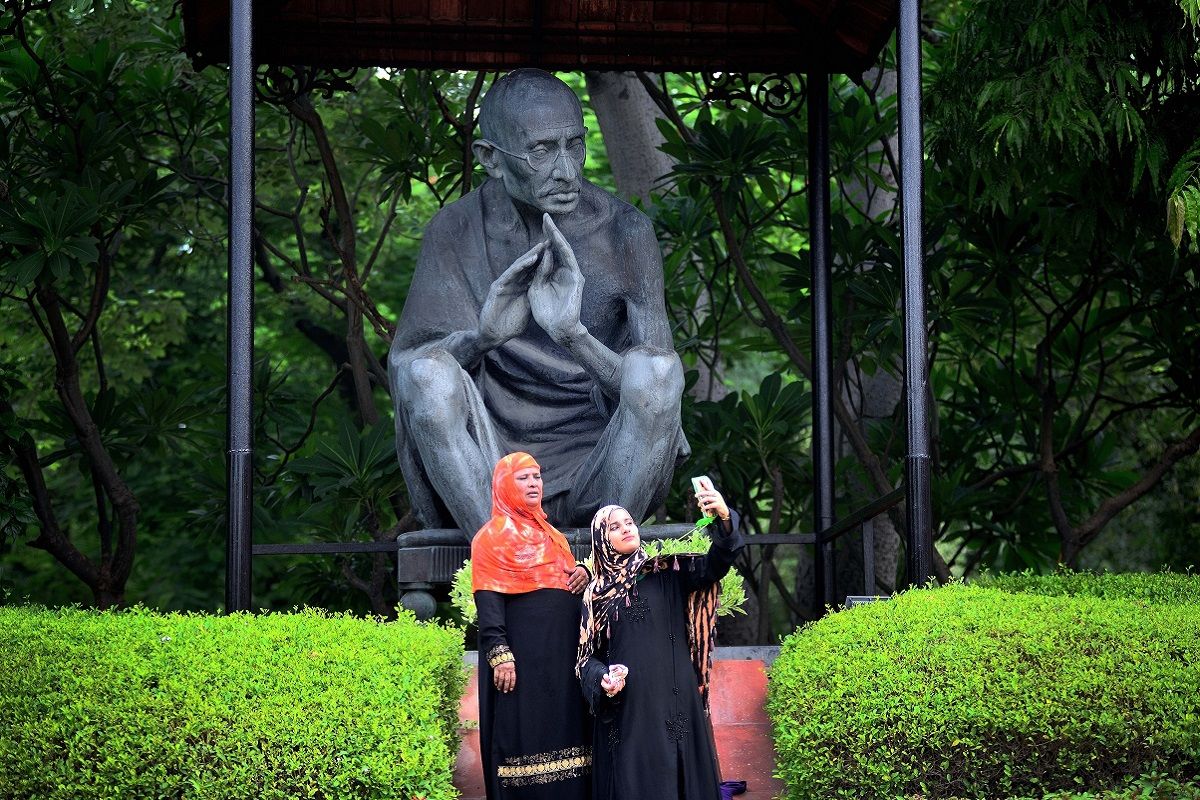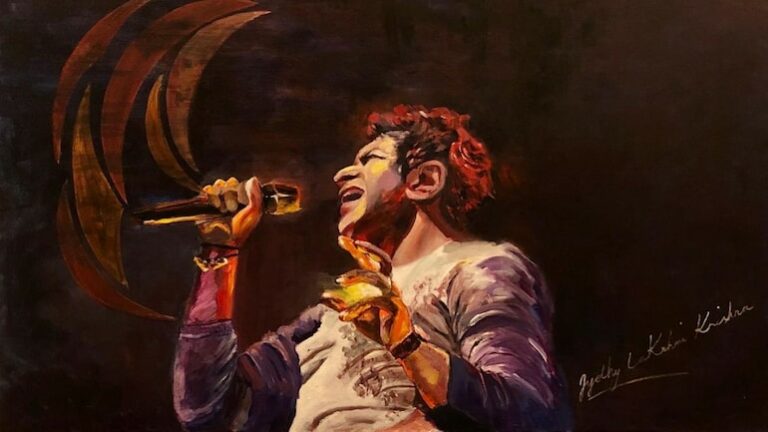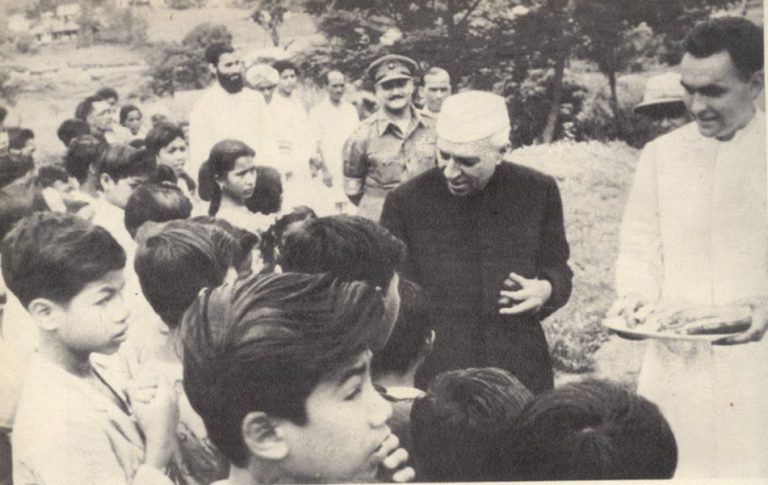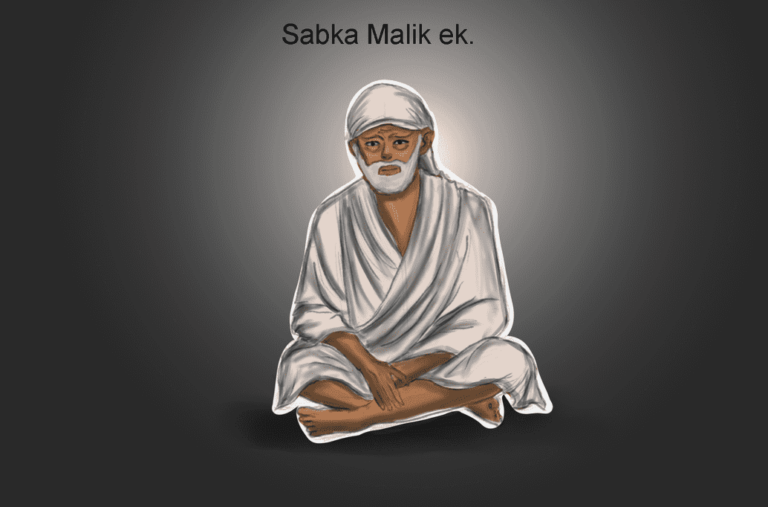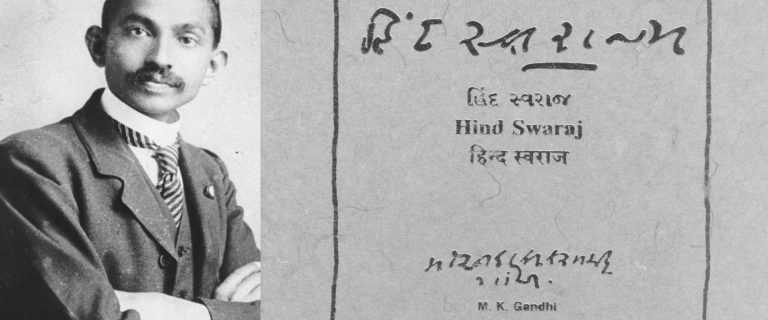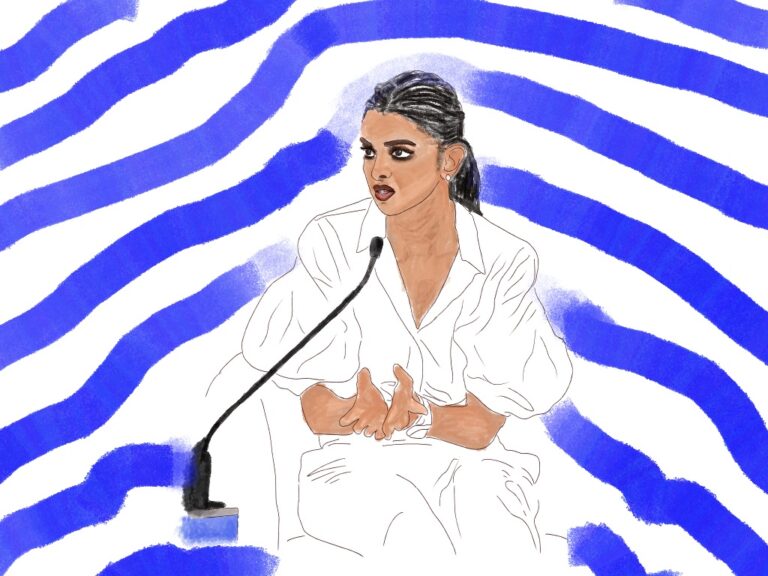To Critique or Not: Gandhi’s interaction with Islam and Christianity

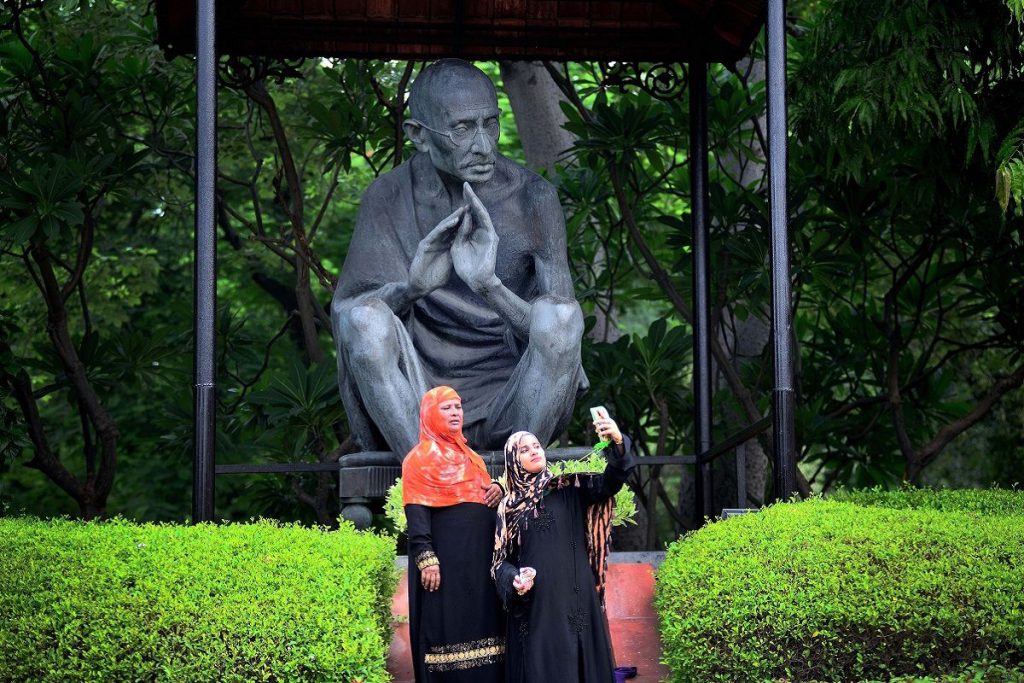
In the 21st century, most scholarly work that analyses the legacy left behind by Mahatma Gandhi largely consists of his early days as a lawyer, his rise to prominence as an ‘anti-colonial nationalist’, and his ethics employed in leading the largest political non-violent struggle against our former colonial rulers, that serves as a source of inspiration and learning for the world.[i] As a self-proclaimed orthodox Hindu, it was no surprise that religion played an important role in shaping Gandhi’s thoughts and ideas. These were often reflected in his political movements, where he engaged in the earnest critique of various religious denominations and their belief systems.
Always true to himself and his followers, Gandhi’s viewpoints were perpetually versatile – open to change where he often discarded views and perceptions that he believed had withered with time, or were in direct conflict with his moral beliefs.[ii] The Mahatma’s frequent allusions to religious precepts in both the intimate and public sphere distinguished him from other prominent individuals at the time. This is because most distinguished political figureheads strictly restricted religion to the private spheres of their lives, in fear of treading upon the murky waters of controversy.[iii]
Gandhi’s equal respect for all religious denominations did not stop him from engaging in the fair critique of their various customs and practices. While he endeavoured to engage in civil discourse without any intention to hurt the sentiments of any particular religious community, Gandhi was inevitably at the receiving end of severe backlash from dissidents who often misconstrued his views. The purpose of this article is to engage with some of the pragmatic conclusions that Gandhi arrived at, through his interactions with [I] Islamic and [II] Christian religious traditions.
Gandhi’s relationship with the Islamic community
Having returned to India after several years abroad, Gandhi was quick to involve himself in the events of the Khilafat movement bringing with him an impressive background, involving nearly two decades worth of intensive governmental activity, during which he maintained a strong affiliation with the expatriate Indian Muslim community.[iv] Most of Gandhi’s acquaintances, who were deeply involved in the political sphere, considered the entire Khilafat movement to be a ‘religious affair’ that was not important for the Indian subcontinent and its citizens.[v] As a result, Gandhi received unrelenting bouts of disparagement for lending his assistance to the movement. Many believed that lending support to the movement was inherently perilous as it could plausibly contribute to the upsurge of ‘religious fanaticism’ and ‘pan-Islamism’ within the country.[vi]
Gandhi continued to lend his unflinching assistance to the Khilafat movement, on the pretext of establishing religious unity, for the purpose of furthering his campaign to achieve complete autonomy and independence from our (then) colonial masters. Therefore, he believed it was imperative that the Hindu religious denomination lend their assistance to the Muslims community as a demonstration of solidarity.[vii] Gandhi further asserted that those lending support to the movement must understand that this was not a political ploy but rather an effort to claim justice from the Allied Forces who had promised to leave the ‘Caliphate‘ (Muslim religious head) intact, throughout the war against the Republic of Turkey.[viii]
Gandhi’s staunch belief to lend support for the cause of his Muslim brethren was looked upon with disdain by various Hindu factions who accused the Mahatma of fostering sentiments of ‘pan-Islamism’ amongst the Indian Muslim populace.[ix] However, these claims were largely misguided for Gandhi was merely trying to reignite the spirit of solidarity amongst both religious denominations. In one incident, he was quick to rebuke the Muslim faction during the Moplah rebellion of 1923. During this period, pandemonium broke out between the Hindus and the Muslims, owing to sectarian strife, which ultimately led to riots. But the issue that perturbed Gandhi the most were the claims of Hindus being forced to choose between death and conversion to Islam.[x] Gandhi severely condemned these acts as they were in direct contravention to his philosophies of truth and non-violence. He believed that Muslim community should feel abhorred by the outcome of the Moplah riots and asserted that the community should channel its energy into ensuring that similar acts of ‘forcible conversions and looting’ become impossible even amongst the most radical members of their community.
In addition, Gandhi was also extremely vocal in admonishing Maulana Mohani – who he accused of defending these atrocious acts under the garb of religiosity. Gandhi firmly believed that one could not perpetuate a religion and its cherished ideals by way of coercion. When asked about the historical nature of forcible conversions, Gandhi responded by stating that the historical accounts of forcible conversions, by Muslim rulers, was largely hyperbolic and that not a single verse of the Quran legitimised forcible conversions.[xi] Therefore, Gandhi firmly believed that the Hindus, who had become victims of coerced conversions, did not require any sacred religious rites for their reinstatement into Hinduism.[xii] It is quite evident from these instances that Gandhi had no interest in appeasing any religious community and was willing to criticize any acts that went against his morals.
Another similar incident arose when Gandhi’s strong condemnation of the stoning of Ahmadiya Muslims in Afghanistan was met with strong disapproval by religious leaders and Islamic scholars, who believed Gandhi was wrong in challenging the authority of the Quran to dictate the actions of its followers. Gandhi’s comments had taken aback several Islamic religious leaders since the act of ‘stoning to death’ was made permissible by the Quran. However, the Mahatma believed that the Quran did not have a singular method of interpretation and that its divinity did not shield it from fair criticism. This earnest engagement encouraged some sections of Islamic scholars to lend their support for the Mahatma’s stance on the issue – affirming that no verse in the Quran legitimised ‘stoning to death’ as a punishment for defecting one’s religion.[xiii] Hence, the violence against Ahmadiyas in Afghanistan was not supported by any religious text and was not exempted from fair criticism by the Mahatma.
Gandhi was not an individual whose decisions were adulterated by personal prejudice or ulterior motives. His philosophies give off the impression that he is willing to ameliorate various religious beliefs and practices for the betterment of its followers. He believed that it was only through fair criticism and reasoning that a religion could remain true to its ethos. In addition, Gandhi’s fair criticism was not without good reason. Every religious contention he raised was subject to reasonable scrutiny and his perception of ‘universal morality’ – which is why he also used to attract a large number of supporters apart from his critics.[xiv] What I have dealt with so far is Gandhi’s engagement with Islam and its various facets. For the remainder of this article, I shall discuss some of Gandhi’s dispositions towards Christianity in India vis-à-vis his thoughts on proselytization and the influence of Christian missionaries.
Gandhian perceptions of Christianity
From the pre-existing biographical accounts, it has already been established that Gandhi had a deep-seated admiration for the personality of Jesus Christ. This profound admiration was imbibed in Gandhi during his education in England – when a friend recommended the Old Testament to him during his preparation for the bar examination. The text of the Old Testament had a positive influence on the Mahatma who found Christ extremely endearing and regarded him as one of the greatest mentors of humanity.[xv] However, he was unable to sympathise with the insistence of the Christian community who asserted the superiority of their religion over other schools of thought. This presumption of superiority rested in the notion that Jesus Christ was the only individual who was ‘perfect in the eyes of the Almighty’. However, Gandhi was critical of this stance, one that was frequently contended by the missionaries, in his assertion that claiming perfection would invariably deny the Almighty’s supremacy to human beings.[xvi] He disregarded the claims of perfection and believed that ‘a human being’s nature could be honed to perfection and that Christ had nearly attained this perfection, although not in entirety’.[xvii]
However, Gandhi’s most serious bone of contention was with the issue of proselytization. As discussed so far, Gandhi maintained a firm belief in the equality of all religious systems. He believed that all religions were premised upon the fundamental truth of ‘enlightenment’ and the only area where they differed were the various methods adopted to realise this common goal.[xviii] Gandhi took a radical but well-informed view of the entire controversy revolving around incentivised conversions and the role of missionaries in these acts. He believed that converting from one religious sect to another was not merely an exercise of personal choice by the individual. Instead, he believed that conversion was a complete disregard of the essence of religion – considering that all religious denominations were inherently equal. Gandhi maintained that if one were to believe in the notion of equality amongst all religions, then converting from one faith to another was ludicrous, and had an adverse impact on both the individual and the collective religious denomination.[xix]
Historically, the Christian missionaries tried to exercise influence over those areas in the Indian subcontinent that were inhabited by tribal communities. They believed that there was a need to ‘civilise these animists’, who were left alienated by civilisation, owing to the paucity of religious systems and cultural solidarity in their communities.[xx] Therefore, the missionaries used this knowledge to their benefit by proselytising large groups of tribals while simultaneously ‘educating’ them about the positive implications of Christianity in their lives. In his past experience of working with the socially downtrodden sections of society (harijans), he firmly believed that the credence of socially isolated backward classes should not be questioned or tampered with. Simply because their lifestyles were devoid of majoritarian religious structures, and often governed by undesirable superstition, did not give Christian missionaries the licence to take advantage of them.[xxi]
Gandhi believed that Christianity’s core essence lay in the Sermon on the Mount and that the attempt, by the Christian missionaries, to bring in the tribal communities into their religious fold was simply an ulterior motive to increase their numbers. Gandhi was also of the notion that the tribal communities in different parts of the Indian sub-continent were a part of the extended Hindu religious sect and that proselytization was not an act of ‘spiritual upliftment’ – it did not increase an individual’s socio-religious credibility in any way.[xxii] The natural question that was posed to Gandhi was that he was invariably criticising the inherent authority of the Christian community to profess and propagate their ideology and beliefs. However, the Mahatma gave a fitting response to this concern by stating that the missionaries were well within their rights to spread the message of their religion by way of sermons or operating educational institutions.
Gandhi vehemently opposed the idea of conversion and the notion that Christianity alone was imbibed with a superior ‘knowledge of enlightenment’ that was absent in other religious denominations. He felt that the Christian missionaries might have conveyed legitimate truths that were in consonance with their religious tenets, but the manner of conveying these beliefs for the purpose of proselytization was of great concern for Gandhi, as he felt that a substantial portion of the population was not sufficiently aware of the spiritual and religious undertones of conversion. He believed that this ‘ignorance’ could be quelled only when an individual was able to accept the equality of all religions and try to work towards the collective betterment of their own religious sect.[xxiii]
Concluding thoughts and remarks
It is evident from the discussion so far that all of Gandhi’s thoughts and ideas were premised on the firm belief in the equality of all religious denominations. He drew inferences about the teaching and practices of other religious sects from his own experiences with Hinduism dispelling any notions of religious superiority. As discussed throughout this article, Gandhi’s views on Christianity and Islam were amenable to a defined set of ‘moral’ and ‘ethical’ standards that were open to criticism from both allies and critics. This has been explored vis-à-vis his views on the stoning of Ahmadiya Muslims in Afghanistan as well as his concerns with mass proselytization of the more ‘vulnerable’ sections of society by the Christian missionaries. Gandhi was always willing to offer assistance to communities who required it, as seen in the instance of the Khilafat movement, and at the same time was quick to dismiss claims of one particular religion’s all-encompassing superiority as seen in his discourse with the Christian missionaries.
The Gandhian notion of religion was not one based on exclusivity or coercion. His idea of religion was premised on the ideals of compassion, tolerance and respect for all religions alike. Gandhi, unlike most individuals, presumed tolerance in other religions and used this notion to build his belief system through a system of logical reasoning and fair critique. His philosophy is one that a modern-day individual can strive towards, but only hope to achieve.
References
[i] Srinivas, M.N. (1995). Gandhi’s Religion. Economic and Political Weekly, pp. 1489-1491, Vol. 30 (25), Retrieved November 30, 2020, from https://www.epw.in/journal/1995/25/perspectives/gandhi-s-religion.html; Thaxton, C. (2016). Gandhi’s Legacy Is More Than an Inspirational Quote. JSTOR Daily, Retrieved November 30, 2020, from https://daily.jstor.org/gandhi-legacy-more-than-inspirational-quote/
[ii] Varadaraja, S. (2019). Threads of change: relevance of Gandhi’s charakha today. The Hindu, Retrieved November 30, 2020, from https://www.thehindu.com/society/threads-of-change/article29540922.ece
[iii] Teitel, R. (1993). Critique of Religion as Politics in the Public Sphere, 78 Cornell L. Rev. 747, Available at: http://scholarship.law.cornell.edu/clr/vol78/iss5/1
[iv] Minault, G. (1982). The Khilafat Movement: Religious Symbolism and Political Mobilization in India, pp. 69-71
[v] Collected Works of Mahatma Gandhi (New Delhi: Publications Division, 1958), Vol. 20, pp. 268-271.
[vi] Ibid.
[vii] Krishna, G. (1968). “The Khilafat Movement in India: The First Phase (September 1919-August 1920).” Journal of the Royal Asiatic Society of Great Britain and Ireland, no. 1/2, pp. 37–53. JSTOR, www.jstor.org/stable/25203021. Accessed December 2, 2020.
[viii] Ibid.
[ix] Collected Works of Mahatma Gandhi (New Delhi: Publications Division, 1958), Vol. 27, pp. 2-10.
[x] Daniyal, S. (2018). Revolt against British or communal riot? Removal of Kerala mural revives debate on Moplah Rebellion. Scroll.in, Retrieved December 2, 2020, from https://scroll.in/article/901670/revolt-against-british-or-communal-riot-removal-of-kerala-mural-revives-debate-on-moplah-rebellion
[xi] Collected Works of Mahatma Gandhi (New Delhi: Publications Division, 1958), Vol. 23, pp. 203-205.
[xii] Ibid.
[xiii] Dhume, S. (2020). Hindu Supremacism Turns Deadly in Delhi. The Wall Street Journal, Retrieved Dec 5, 2020 from https://www.wsj.com/articles/hindu-supremacism-turns-deadly-in-delhi-11583447463
[xiv] Mishra, R.K. (2019). Gandhi and Religion. Gandhi Marg Quarterly, Vol. 41(4), pp. 383-386
[xv] Gandhi, M.K. (1937). “Discussion with a missionary” in Collected Works of Mahatma Gandhi, Vol. 65. pp. 80-82.
[xvi] Collected Works of Mahatma Gandhi (New Delhi: Publications Division, 1958), Vol. 58, pp. 402.
[xvii] Ibid.
[xviii] Singh, Ajai R, and Shakuntala A Singh. (2004). “Gandhi on religion, faith and conversion: secular blueprint relevant today.” Mens sana monographs, Vol. 2 (1), pp. 79-88.
[xix] Ibid.
[xx] George, S.K. (1947). Gandhi’s Challenge to Christianity (Ahmedabad: Navajivan Publishing House, 1947), 2 edn. Retrieved December 1, 2020, from https://www.mkgandhi.org/ebks/gandhis_challenge_to_christianity.pdf
[xxi] Mishra, R.K. (2019). Gandhi and Religion, pp. 389-390
[xxii] Mishra, R.K. (2019). Gandhi and Religion, pp. 391-393.
[xxiii] Collected Works of Mahatma Gandhi (New Delhi: Publications Division, 1958), Vol. 65, pp. 79-82.
Featured Image Credits: Priyanka Parashar


